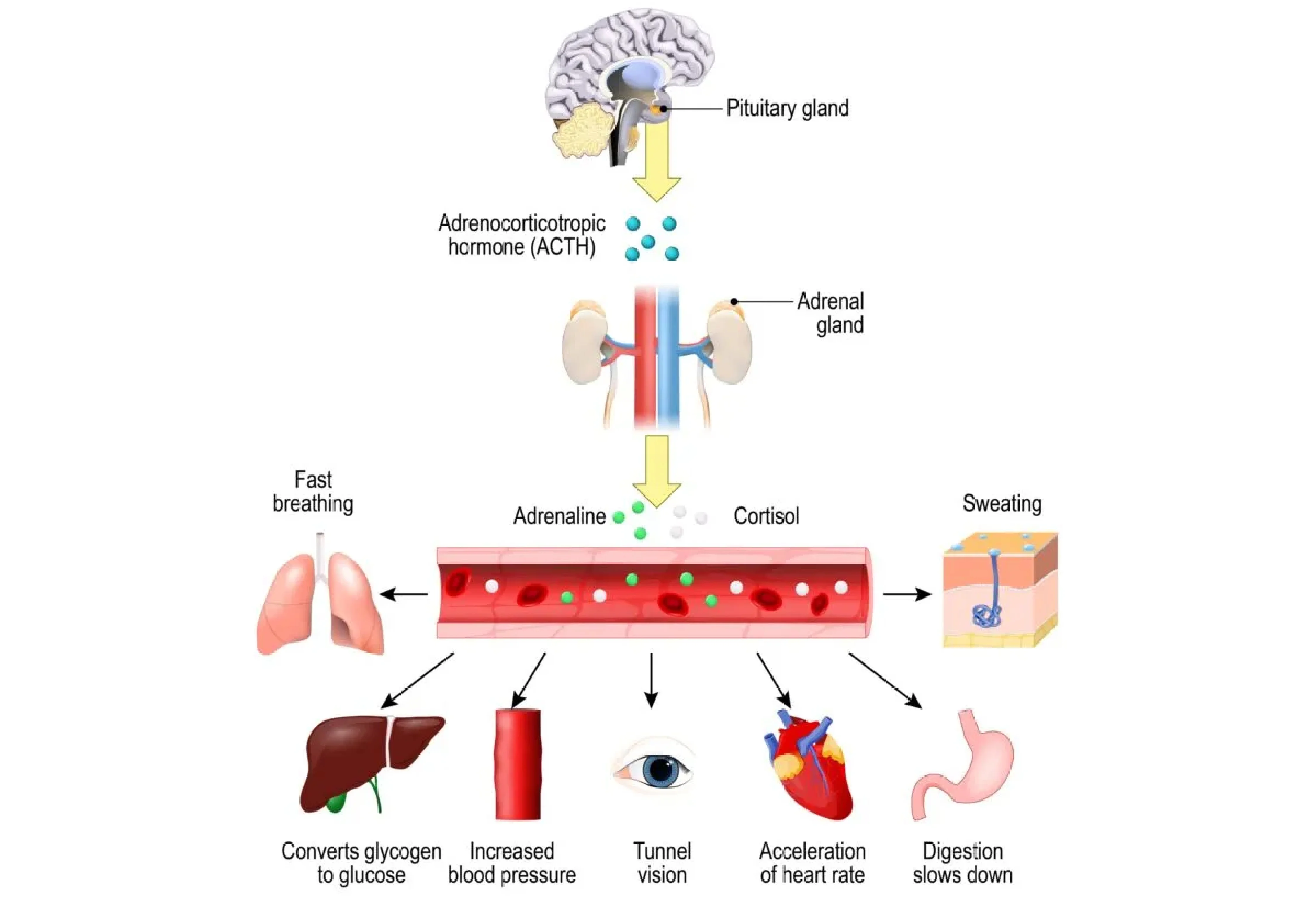
Book an Appointment
Call Us01140846835How Stress Affects Brain Health: Neurological Insights
The word “stress” is something none of you wants in your lives. You or your colleagues might often say, “I’m stressed” or even “I’m overstressed.” Right?
But do you fully comprehend what this “S” word does to your brain? Stress isn’t just a state of mind; it is a common factor harming your brain’s structure and function. It can affect memory, emotions, and your decision-making ability. Chronic stress can decline cognitive ability and can even shrink key areas of your brain, increasing the risk of mental health issues.
Let’s explore:
- How does stress impact your brain?
- How to manage stress with simple techniques
Read Also: 10 Brain-Boosting Foods to Enhance Memory and Cognitive Health
 How Does Stress Impact Your Brain?
How Does Stress Impact Your Brain?
Think of stress like a constant, unnecessary gatekeeper flashing false alerts to your brain. It signals that there’s a danger, even when there isn’t.
This false alarm, or constant stress, can harm your brain in more than one way:
Stress Hormones Overload Your Brain
- When you’re stressed, your brain releases two stress hormones, adrenaline and cortisol, to prepare you for action, like a quick alert system.
Brain Inflammation (Swelling)
- If stress sticks around too long, it leads to inflammation (swelling) in your brain, which can mess with your mood and memory.
Troubles You to Memorise Things
- Stress can make it harder for you to retain things and focus because it leads to hippocampus (brain area responsible for memory) shrinkage.
Mood Changes
- You might feel more anxious, depressed, or irritable because chronic stress disrupts how your brain controls emotions.
Increased Risk of Brain Diseases
- Long-term stress may raise the chances of contracting problems like dementia, depression, strokes, headaches, or migraines.
Impaired Brain Function
- Constant stress can make your brain work less efficiently, affecting thinking and problem-solving. Additionally, stress impairs decision-making ability.
Survival Response Overload
- Your brain’s fight-or-flight system gets triggered, and the amygdala (which handles fear and anxiety) gets overactivated too frequently in today’s world, which wasn’t built for constant stress. This leads to modern-day burnout and exhaustion.
Damage to Brain Cell Health and Plasticity
- Chronic stress damages your neuroplasticity (ability to form connections throughout your entire life). This reduces the brain's ability to grow new cells, weakening overall brain resilience and adaptability.
Read Also: World Brain Day 2025: Importance of Brain Health
How to Reduce the Negative Impact of Stress on Your Brain Health
The following are effective ways to reduce the negative impact of stress on your brain health:
- Practise relaxation techniques to help calm your brain and reduce the negative neurological effects of stress.
- Exercise regularly to boost mood-uplifting chemicals and reduce cortisol's impact on the brain.
- Practise mindfulness to help you focus on the present moment.
- Get enough sleep (aim for 7-8 hours) to restore your brain health and help regulate stress responses.
- Connect with your social circle to get the required emotional support and help buffer stress.
- Spend time in nature to reconnect with the natural world, creating a powerful sense of belonging and calm.
- Choose enjoyable hobbies to help you provide much-needed distraction and joy.
- Laugh more to help lower stress hormones and elevate happy ones (dopamine, serotonin, and oxytocin).
- Practice gratitude and empathy to foster positive thinking and resilience, allowing for optimal stress management
Read Also: Your Friendly Guide to Preventing Dementia: Tips for Everyday Life
To Summarise
Sometimes, you get so engulfed with daily tasks that you don’t even notice that stress has quietly settled into your life. It can slowly harm your brain and disrupt the delicate neurological pathways that control how you think, learn, and make decisions.
Keeping your brain healthy is important for your everyday activities, from solving problems to remembering crucial things. If stress starts to knock at your door, don’t ignore it, hoping it will go away on its own. Do reach out for professional help. Visiting one of the best neurologists in Delhi can guide you toward the right treatment so that you can safeguard your brain’s health and function.
 By -Dr Aaksha Shukla |
August 26, 2025 | 9 Min Read
By -Dr Aaksha Shukla |
August 26, 2025 | 9 Min Read
Best Tips for Sports Injury Recovery
Guide to Stroke Prevention and Recovery
How to Manage Parkinson’s Symptoms Effectively
Traumatic Brain Injury: Symptoms, Causes, and Treatments
10 Superfoods That Boost Your Brain Power
10 Early Warning Signs of Brain Stroke Everyone Should Know
5 Most Common Sports Injuries and Their Quick Treatments
12 Everyday Habits That Damage Your Spine
Brain Stroke: Causes, Warning Signs & Emergency Treatment
10 Early Symptoms of Brain Tumor You Should Never Ignore
How to Choose the Right Neurosurgeon in Delhi NCR
Early Signs of Spinal Disorders in Working Professionals
How Advanced Neurosurgery Is Saving Lives: A Look Inside IBS Hospitals
Epilepsy: Diagnosis and Treatment in Delhi
Stroke Recovery: How a Comprehensive Neuro Rehab Plan Makes the Difference
Early Signs of Brain Tumor You Should Never Ignore
Benefits of Neuro-Navigation in Brain Surgery
Warning Signs Of Stroke You Should Never Ignore
Diagnosing Autism Spectrum Disorders Early: Why It Matters
Spine Surgery vs Physiotherapy: Which Is Better for Back Pain?

